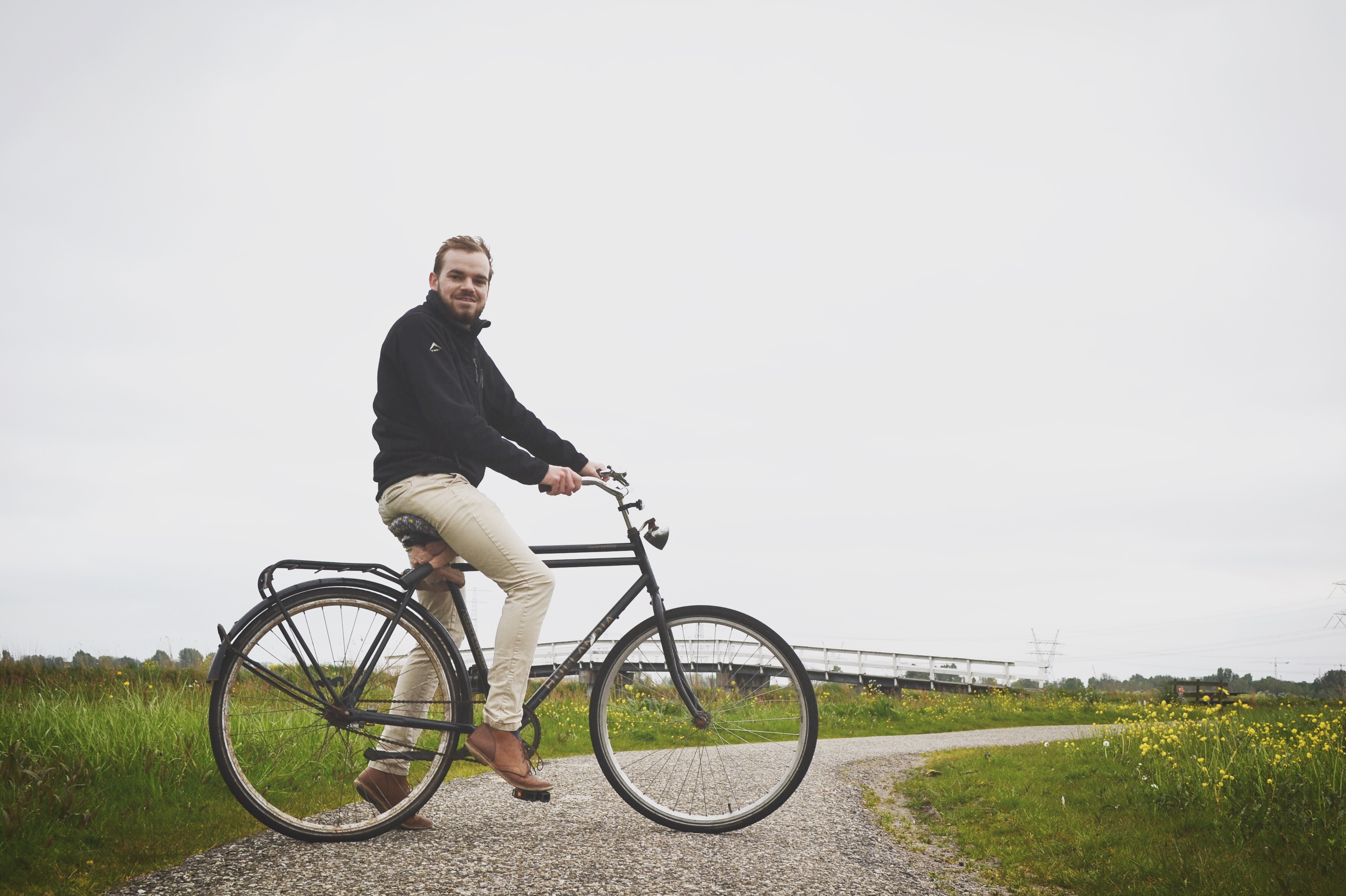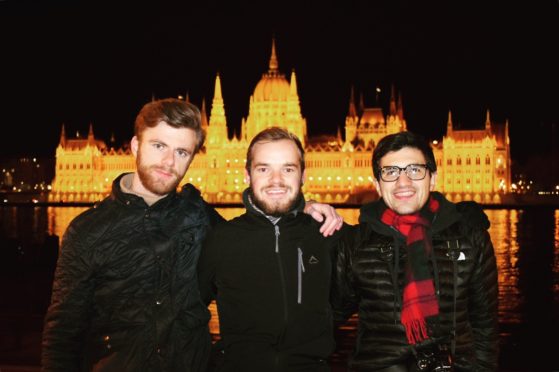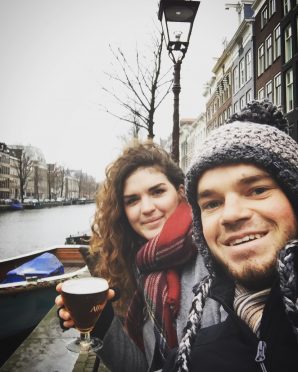I loved my comfort zone, a lot. Then I left it and learnt a great lesson. Before boarding the plane, I spent weeks terrifyingly wondering why I chose to exchange a perfectly happy life for one I had no clue about. I was annoyed by those comfortingly saying that I would return in six months and that it would all be the same again, because they were wrong – it won’t be the same – and I needed someone to tell me to stay. Nobody did, so I flew away.
Pre-departure:
Well done, you have been selected by Stellenbosch University International (SUI) to go on a semester exchange to the University of Amsterdam (UvA) – the journey of a lifetime awaits. But before you depart and all the excitement kicks in, there is some admin to be sorted out.
One of the best ways to keep sane during this process is to remain calm and patient – everyone is doing their best to get you to Amsterdam, so be nice and do your part.
If you follow the guidelines provided by SUI and UvA, literally nothing should or could go wrong. Here are a few tips for your pre-departure preparations:
- [UVA APPLICATION] After being selected by SU International, you will have to submit your application to UvA – luckily it is pretty much the same as what you have already completed for the internal application. (Tip: You can request an academic transcript from SU International, so you don’t have to pay the fees at Admin A for this.) SU International’s standards are on par with those of UvA, so you shouldn’t be worried about ‘getting accepted’ at UvA. After you have submitted your application – and everything is in order – you will receive your letter of acceptance about a month later.
- [SEMESTERS & BLOCKS] Depending on which semester you go, classes will start on different days. The first semester (our second) starts on the first Monday in September, and the second semester (our first) starts on the first Monday in February. A semester at UvA consists of three blocks (our two terms) and the first two of these are eight weeks long, including one week of exams, followed by the final block of four weeks. Exchange students usually only have class during the first and second blocks, but it is dependent on the modules you register for – also keep this in mind when you book accommodation, as the leases are by default for two blocks, not three.
- [MODULES & CREDITS] The minimum number of credits you will be allowed to take is 24 ECTSs (1 ECTS = 2 SU CREDITS), thus 48 of our credits. If you have to transfer credits, make sure that you register for the right amount – maybe more, but never less. I would not suggest registering for too many (unnecessary) credits, as you don’t want to be spending all your time in Amsterdam behind the books – trust me. If you are concerned that you might not pass a module, it might be a good idea to take up another one just in case – you can always deregister for it in the end.
- [VISA] First things first, make sure that you have a valid passport with many open pages. If you don’t have one, you can go to the Department of Home Affairs in Somerset West and apply for one – you will have it within ten working days. If you don’t have a European or other fancy passport, you will, like me, have to go through one of the most dreaded processes of exploring this great world: a visa application. Luckily, the team over at UvA are extremely helpful with this and there shouldn’t be any issues – although it is quite expensive! You will have to submit all you documents online to UvA and then they will review it. If everything is in order, you will have to send them the hard-copies of the documents, in order for them to submit it at Dutch Immigration. (Tip: You can send the hard-copies via the direct mail line between SU International and UvA – saves you a lot of money). Once they have received your documents, you will be notified of the submission thereof to Dutch Immigration. Once your documents have been processed and your visa is issued, you will receive a confirmation e-mail from UvA – this is usually about three weeks after you have submitted the hard-copies. You will then have to make an appointment at the Dutch Consulate in Cape Town to submit your fingerprints, after which your visa will be issued in your passport about three days later. Note that your visa will only be valid for 90 days, after which your residence permit (see below) will kick-in. The most important thing to remember when it comes to the visa application process is to stick to the deadlines provided by UvA. Make sure that all the document you submit to them are correct to your best knowledge and rather submit sooner than later. (There was a problem with one of my documents and it delayed the process by over three weeks, resulting in me getting my visa the day before I flew out – not the kind of stress you want to be dealing with on your final day in sunny South Africa!).
- [ACCOMMODATION] Finding accommodation in Amsterdam is like finding a parking spot in Stellenbosch – impossible, expensive and often resulting in tears. Therefore, I would highly recommend you to make use of the options provided by UvA. You will be given the opportunity to apply for accommodation through the UvA to one of the housing companies – either DeKey or Duwo. You cannot choose your location in Amsterdam, you can simply choose the price-range and room type (i.e. single, double, shared, etc.) you prefer. Once you have submitted your information and DeKey or Duwo has processed your application, you will receive an e-mail with a link to book a room – this is where the Hunger Games begin. You have to go to the link as soon as possible, as everyone will be online choosing the best and least expensive spots first. It is also imperative to sit with Google Maps open and first search the location before booking it – otherwise you could get a big surprise when you arrive in Amsterdam. Some of the buildings are in the city centre and others can be as far out as a 30-40 minute cycle – not the greatest for an early morning class or after a late night out at Coco’s. The best options are Prins Hendrikkade, Funenpark, Prinsengracht, Plantage Muidergracht and Weesperstraat – or anything else that is close to the city centre. Another option that is a bit further out, but still relatively close is Diemen. If you didn’t get the desired spot, just remember that wherever you stay or whomever you stay with, you will have a great time – at the end of the day it’s just a room and you won’t be living there for the rest of your life.
- [ISN: INTERNATIONAL STUDENTS NETWORK] Shortly before departing, you will receive an invite to be part of the ISN Introduction. Whether you had a good or bad experience during JOOL / MAD2, set that aside and embrace the life of an exchange student – YOLO has never been more relevant. I would highly recommend paying the price to be part of this, as you will meet loads of people who are all sharing in the same experience as you do. I met my best friends during this time, so I cannot image my experience in Amsterdam without the ISN Introduction.
- [FLIGHTS] Once everything is sorted out, you just have to fly out. It is possible to get quite cheap flights with Emirates, Qatar, Turkish Airlines, Ethiopian Airlines and AirEgypt – keeping in mind that the only constant is change, especially so for the aviation industry, therefore have a look at as many airlines as possible. I would highly recommend booking a ticket that you can change, as you might decide to stay a bit longer in the end. I would also recommend booking your flight a day or two before you have to start with the ISN Introduction or classes, so that you can settle in. You should be able to move into your accommodation by then.
- [THINGS TO PACK] I really learnt to live with as little as possible in Amsterdam, so I would recommend not taking too much stuff with you. My rule of thumb was this: if I’m not absolutely going to use it, or willing to buy it over there at a more expensive price, it’s staying behind. If you’re going in winter, you cannot survive without an umbrella, rain-jacket, gloves, beanie and a scarf – perhaps also a pair of thermal underwear. It gets really cold and rains for weeks on end. Keep in mind that most of the stuff you buy in Amsterdam (i.e. pens, staplers, books, cutlery, etc.) will have to stay behind – therefore bring along what you aren’t willing to buy or leave here. It is also essential to bring a small travel bag with, to use as hand-luggage on flights, trains or busses.
Life in Amsterdam:
You have arrived in Amsterdam – or ‘Mokum’, as the locals call it. Welcome! I am not going to share too much information here, as I really believe it is best to figure it out by yourself and learn along the way. Amsterdam is one of the most livable cities in the world and currently ranked the number one city for young people to live in – with good reason.
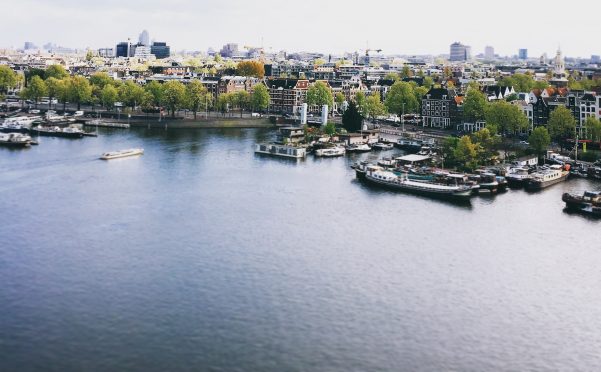
I didn’t really read up about Amsterdam a lot before I left for exchange. The last few weeks at home were pretty busy and I honestly didn’t want to think about leaving all that much, so I just tried to live in the moment. Maybe it was because I’d been to Amsterdam before, so I had an idea of what the city looked like. But I also found that it can be an information overload when you read a lot of brochures and watch a lot of YouTube videos, and I honestly didn’t find the ‘Travel to Amsterdam’ type of videos to be of much use. So, in essence, I kind of wanted to be a bit ‘unprepared’ or ‘lost’ when I arrived, as I thought it would contribute to the learning experience. I am not disappointed. However, there are some helpful tips and observations that I have been given by friends who went on exchange before me. Here are some of them:
- [START APPOINTMENT] When you arrive in Amsterdam, your first order of business is to attend your START appointment, arranged by UvA for you. During this appointment, you will be able to quickly sort out the final admin: registration with the municipality; opening a bank account; receiving your student card and house key.)
- [RESIDENCE PERMIT] As I said earlier, your visa will only be valid for 90 days, where after your residence permit will kick-in. As a South Africa, you will have to go for a TB-test (no needles, promise!) before they issue it. Your residence permit counts as your ID in Europe and, by law, you have to carry it on you at all times. Leave your passport safely stored at home. You will also need this (together with your passport) when you travel outside of the Netherlands, to regain entrance into the country. (Tip: The permit makes you an EU-resident for the time of its validity, meaning that you can get a lot of discount at museums, parks, etc. – especially in France where all EU-residents under 26 can enter most museums for free.)
- [ACADEMICS] I did two modules in Philosophy and found the ‘seminars’ (classes) to be very similar to my post-graduate experiences at SU. The classes where usually two hours long and required quite a bit of preparation beforehand. Everything was very interactive and the lecturers didn’t ‘lecture’ us per se – they played the role of a facilitator in a conversation and guided the students to get to their own answers. Most of the students in my classes were also internationals and all the classes were conducted in English, with the option of writing tests and essays in Dutch. I immediately realised that the lecturers were a lot less strict when it came to deadlines – often accepting hand-ins as late as three weeks after the ‘soft’ deadline. The lecturers were also more approachable than our lecturers at SU – at least in my undergraduate experience – and this created a really nice environment to learn in. The Dutch are quite well-known for being on time (class starts at 10h00, not 10h05), so don’t be late. When it comes to class attendance, we were told that UvA has a zero-tolerance policy for missing class without a valid excuse, but this was hardly ever seen to happen. However, this might be different depending on the lecturer, so make sure you know his/her policy before missing a class to spend the long weekend in Budapest. Overall, I have mixed feelings about my academic experience at UvA: I did not find it very intellectually stimulating, however I really did enjoy the lecturers and they ways in which they taught us. Perhaps it was just the courses I chose, but it could have been a bit more exciting.
- [BIKES & PUBLIC TRANSPORT] There simply is no better way to commute in Amsterdam than by bike – it is the quickest, cheapest and most convenient way, trust me. I hardly used public transport at all, except taking a train to the airport. For everything else you could possibly want to do, there is a bike lane that can take you there. This city was designed around the biking system, so the infrastructure is amazing to get around. I was lucky to get a bike for free, as one of my friends had left it for me after her exchange, but they are available everywhere (best option is to go to Waterlooplein and find a second-hand one) at an average of €70,00 – and you can resell it after your exchange, so you get the money back. Don’t spend too much money on a bike, as there is a big chance that it will get stolen or that you will have to replace some of the parts during your semester. The public transport system is great and very efficient, but it is expensive and doesn’t take you exactly where you want to be. When you are on your bike, you can cycle from point A to B without any problems. However, it is a good idea to at least familiarise yourself with the bus, tram, metro and train system – for the odd trip. First things first is to buy an anonymous OV-chipkaart at Central Station, to load credit onto. You basically save €1 per trip using this card, which adds up in the end. Then, install the 9292-app to see the schedules and platforms of the transport – much easier than looking for your destination on the big screens at the stations. You will easily figure this system out too, so don’t stress too much about it.
- [TRAVELLING] See as much as you can, as often as possible. You will never be able to relive this experience, so don’t regret anything – go to that random city if someone invites you and hitch-hike to Paris if you get a partner. It is really not that expensive to travel in Europe and I ticked-off quite a few countries. Look at FlixBus, easyJet and Transavia for cheap options. Backpackers are great and readily available all over the continent. Consider some of the ISN-trips, as they are really cheap and loads of fun. Traveling was undoubtedly the best part of my experience and am extremely grateful for all the places I have seen and hopefully will return to one day.
- [SHOPPING] There are some essential shops that will become a part of your everyday life in Amsterdam. One thing that is quite interesting to note is that there are hardly ever trollies available at shops, as everyone transport their groceries, etc. with their bikes, which means that you end up not buying too much stuff. For buying food, I would suggest Albert Heijn (remember to use your Bonuskaart for discounts or ‘acties’) or Lidl – stay very far away from Spar, as it is really expensive compared to the others. For homeware, go to Blokker and for toiletries and such, go to Kruidvat. A really nice shot with a variety of items – from food to homeware to stationary – is HEMA. If you want to go shopping, Kalverstraat is your place.
- [FAVOURITE SPOTS IN AMSTERDAM] Amsterdam has everything to offer, and more – so much more. It is a city that you will come to fall in love with, or not – that is also fine. My favourite thing about Amsterdam was the absolute freedom you had on a bike. You’ll instantly notice the thousands of bikes that crisscross the city, but be aware: it is not just an easy way to get from A to B. In this city, and country, bikes are the shining beacons of freedom and independence – something the Dutch pride themselves in. It’s a metaphor for their DIY-culture and the freedom to choose what you want to do and when you want to do it – without any interference. It also speaks about equality: very few people have fancy bikes, simply because nobody cares what you ride. After all, we’re all equal in the bicycle lane. What I loved most about my bike was the places it took me – here are some of my favourites, Google them if you want to know more: Vondelpark, Museumplein (remember to buy a Museumkaart), Hannekes Boom, Amsterdam Roest, Brouwerij ‘t IJ, Tinner, Pancake House Upstairs, Ling’s Wok, Café Gollem Raamsteeg, Eetcafe Singel 404 and many more – just be on the lookout and ask locals.
Actually, all that is needed to say here is to enjoy your time. Work hard, but play much harder. Travel, but also get to know Amsterdam. Make friends and realise that you can maintain those relationships for life – I still speak to my friends on a WhatsApp-group almost every day and we have already planned our reunion next year. At times you will miss Stellenbosch and South Africa, and that’s very natural. Everyone over hear is just a WhatsApp-call or Skype away, so don’t let the distance bother you. Be present and mindful of your time in Amsterdam – because this really is only a once in a lifetime experience and never-ever will five, six moths fly by so quickly, yet feel like a lifetime – trust me.
Conclusion:
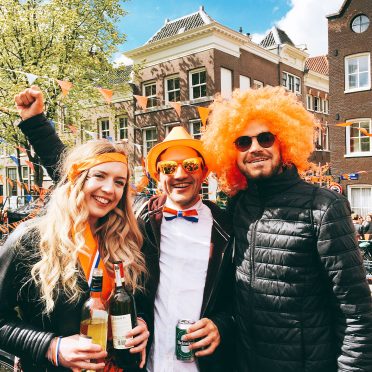
The hardest part of going away, is coming back. One the one hand it feels the same as leaving: you are terribly scared, yet also very excited.
My biggest fear upon returning was that everything over here had changed, or that nothing had changed – I’m still trying to figure out which one actually happened.
In the end though, I know that I am the one who changed and that makes it the most difficult. The life I left behind wasn’t simply waiting for me with open arms upon my return – some people who were very close to me, had moved on with their lives and that was difficult to deal with. On the other hand, I have also moved on with my life and it was impossible to just pick-up where I left off. The first few days were very exciting and I was happy to see familiar faces again, but then everyone got used to the fact that I was back and the excitement died down. That is when I really started to miss everything that was so normal for the past six months. It took a lot of courage and introspection, but I needed to decide to be happy with my life in South Africa and in Stellenbosch again – it really wasn’t easy. But there is no point in gaining such valuable life skills and great memories in Amsterdam, and then coming back and being sad at home – it’s not fair to yourself or to any of the people who love you over here. It gets easier every day and you will feel welcome and at home again – you just have to give yourself time.
I will leave you with this final memory:
I’ve always wanted to change the world, but I’ve learnt that the world first needed to change me. Perhaps that is the best way to describe the life I’ve lived and the lesson I’ve learnt in Amsterdam – a change of heart and mind. And what a life it has been. ‘Calm down, it’s only been six months’, I know. But it’s been the longest six months ever; it feels like I was there for at least a couple of years. I collected a lifetime’s travels, memories and friends and I cannot thank SUI and UvA enough for this experience. It’s too much to explain or even comprehend; perhaps one day I’ll be able to tell you what it all meant, but for now just remember this: I’m not the same person as I was a while ago. It sound ridiculous, I know, but it is what it is.
Maybe life will carry on as it did or maybe it won’t. But I’m happy now. It’s been the best of times and the waters of those canals will, forever, run through my veins. Nothing is meant to last eternally. I’ve lost my heart in Amsterdam and whatever is left of me belongs to South Africa, for now.

